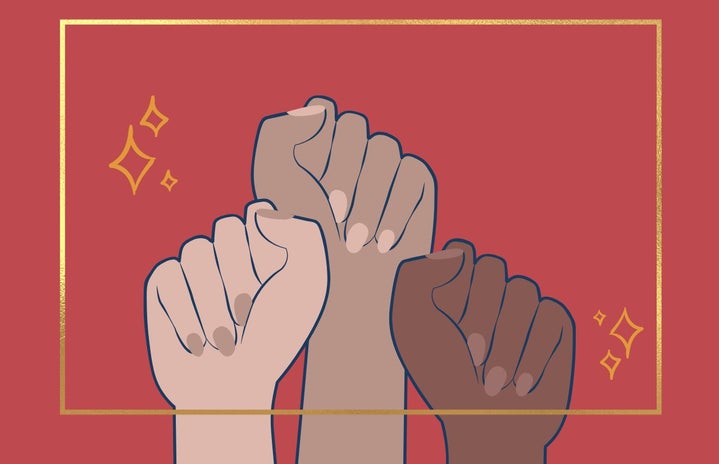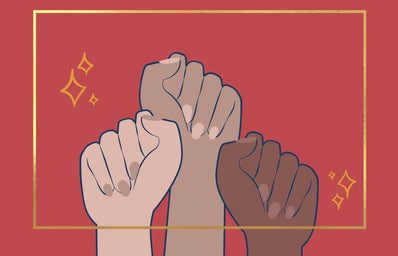During the majority of the year, we’ve focused on the pandemic and the 2020 presidential election. As the latter has now been resolved, it is important that we keep our desire for change alive.
Incidents of Uyghurs and other Turkic Muslims being compelled to do manual labor in internment camps came across my For You page on Tik Tok. An app that is meant for dances and comedic videos to go viral exposed me to the vile treatment of human beings overseas. I decided to look further into what was going on in Xinjiang, China. I’d like to introduce you to this issue by breaking down who’s being targeted and forced into these camps, as well as China’s statements and the media’s coverage.
Who are the Uighurs?
The Uighurs or Uyghurs are people of Muslim Turkish background who ethnically identify with Central Asian nations. The Uighurs practice a branch of Islam that is mixed with Sufism. Uighurs mostly live within the western province of China known as Xinjiang where 11 million people reside. Although Uighurs have been recognized as official citizens deserving of equality, they’ve had a tumultuous relationship with the Chinese government.
How did the issue begin?
Even though China is multiethnic empire, they have always had difficulty acknowledging Islam and incorporating it into the culture. Many citizens follow Islam, yet the country has struggled to accommodate the religion. Xinjiang has been the region where the majority of Muslims find their home, but with the prejudicial policies implemented by China, their safety has come into question.
In recent years, the Chinese government has expanded the number of detention camps within Xinjiang with a focus on suppressing the Uighur Muslim population. Recently, they constructed nearly 400 internment camps, labeling them “re-education” centers.
What’s going on in these “re-education” centers?
There have been few accounts from the Chinese government of what’s actually going on. For the most part these locations are closed off to the public and media. Information gathered has come from drone images and accounts of people who have managed to escape. The Guardian discovered drone footage that showed hundreds of captives shackled and blindfolded. While China has allowed tour media groups and diplomats around appropriate areas, the media’s coverage has centered around drone footage and clues to locate the detention centers.
One of the most harrowing accounts of what’s happened came from an Uighur teacher who underwent forced sterilization. It has become apparent that many women in the centers were illegally sterilized in the government’s effort to limit the procreation of the Uighur population. It was reported that women from ages 19 to 59 were either required to have intrauterine devices (IUDs) implanted or undergo a sterilization procedure. As reported by The Guardian, Qelbinur Sidik was forced to have an IUD implanted at the age of 47 and undergo sterilization three years later. A recent investigation conducted by the Associated Press found that Uighur and other Muslim minorities would be fined for having too many children. The AP reported that birth rates in Uighur regions collapsed by more than 60 percent between 2015 and 2018. Sidik experienced issues with her first IUD and had to have it removed. A year later, upon inspection, the government forced her to have a second one implanted, then ultimately forced her to be sterilized. According to Sidik, in 2019, as per the government’s order women aged 18 to 59 must be sterilized.
In addition to her sterilization, Sidik was also sexually harassed by a Han Chinese man who was required to live in her apartment for surveillance. The program is conducted by the government and several women have reported that these pseudo-relatives sexually assaulted or abused them. While working as a teacher in one of the camps, Sidik was exposed to the unsanitary conditions. She noted that the policies deprived the Uighurs of food and water. Detained women have also experienced sexual assault at the hands of Han Chinese officials. Sidik’s account is just one of many from those who have been fortunate enough to leave China, an act that is virtually impossible for many Uighurs, including her husband.
What has China said?
Beijing officials have described the camps as centers directed towards training to end religious extremism and provide new vocational practices. According to Reuters, during a briefing in Beijing, officials declared that many Uighur had returned to their homes safely and had “successfully achieved employment.” The official transcript given to the media uses language that depicts the situation as a “graduation” instead of highlighting the reality of the centers. Additionally, the Chinese government has not released numbers that give any indication of just how many people are being kept within these centers. China has continued to state that the program has been successful in deescalating radicalization in the region.
What can be done to help?
Due to the overall secrecy surrounding the internment camps in Xinjiang, the best way to help is to urge our senators and elected officials to seek out the truth. The U.S. has the power to align itself with other countries and put pressure on this regime to stop these atrocities. Some Uighurs have been forced into labor to produce garments. It is important to end our complicity and boycott these organizations and support ethical organizations. There are several organizations, such as the Save Uighur Project, Amnesty International, the Uyghur Human Rights Project and No Rights. No Games, that work towards helping end this mass incarceration and slave labor.
You can also sign petitions, for example to cancel the 2022 Beijing Winter Olympics, call for the release of Uyghur Folklore Professor Rahile Dawut and free Uyghur Muslims from forced labor.
It is essential that many of us around the world lend our voices to represent those being silenced by an unjust government. Instead of turning away or sliding onto the next new video, focus on signing and sharing petitions. By explaining to one person what’s going on, you can initiate a change that can help save millions.


